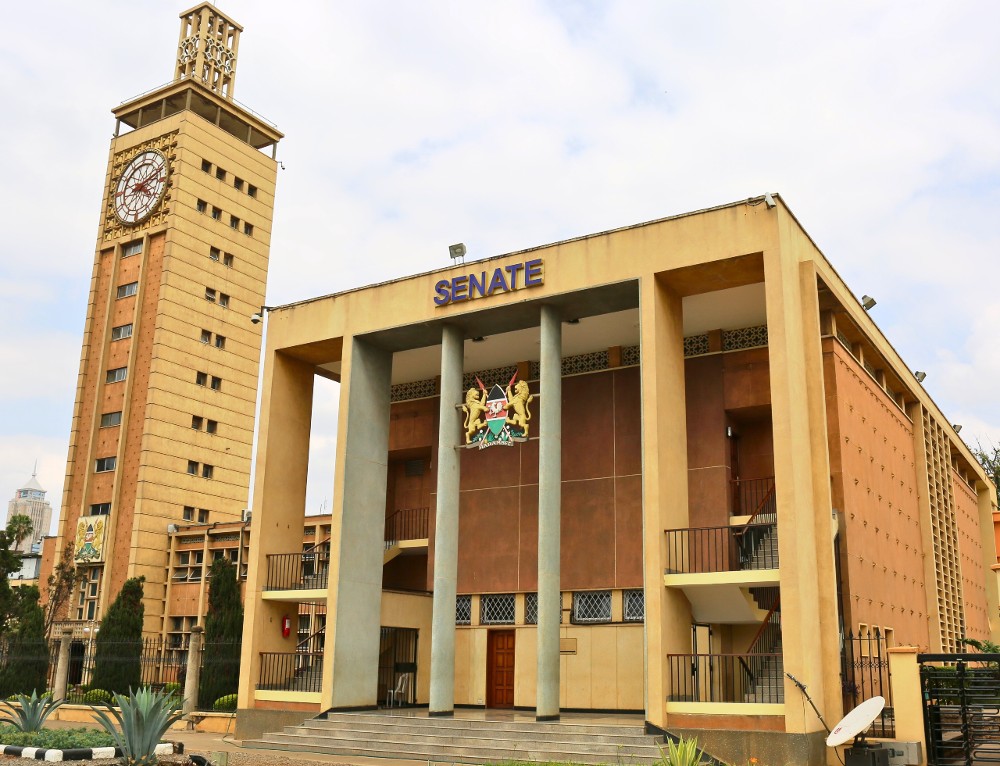As Kenya strides into a transformative phase of its economic landscape, the Cooperative Bill 2024 has emerged as a pivotal piece of legislation poised to reshape the country’s cooperative sector.
The law before the Senate comes amid a backdrop of economic challenges and calls for reform. This bill promises to modernize governance, enhance accountability, and empower millions of Kenyans who rely on cooperatives for their livelihoods.
From coffee farmers in the highlands to matatu operators in urban centers, the implications of this legislation are far-reaching. But what exactly does it entail, and how will it impact the sector?
The genesis of the Cooperative Bill 2024
Kenya’s cooperative movement is a cornerstone of its economy, with over 14 million members across more than 22,000 registered cooperatives. These entities span agriculture, transport, housing, and savings and credit cooperative organizations (SACCOs), contributing significantly to the nation’s GDP.
However, the sector has long grappled with issues such as mismanagement, corruption, and outdated regulatory frameworks. The Cooperative Societies Act of 1997, which has governed the sector for nearly three decades, was increasingly seen as inadequate for addressing modern challenges.
The Cooperative Bill 2024, formally known as Cooperatives Bill No. 7 of 2024, was introduced to replace this aging legislation. Its journey began with consultations between the Ministry of Cooperatives and Micro, Small, and Medium Enterprises Development, the Council of Governors (CoG), and the National Assembly’s Departmental Committee on Trade, Industry, and Cooperatives.
ALSO READ:
Stakeholders call for urgent solutions to devastating hacking cases
After months of deliberation and public input, the bill passed its second reading in Parliament in late 2024, signaling a collective resolve to revitalize the sector.
Key provisions of the Bill
At its core, the Cooperative Bill 2024 seeks to entrench governance, ethics, and accountability while aligning the sector with Kenya’s broader economic goals, such as those outlined in Vision 2030. Here are some of its standout features:
Establishment of the Office of the Commissioner for Cooperative Development
The bill creates a centralized authority to oversee all cooperatives nationwide. This office will regulate entities outside the purview of the SACCO Societies Regulatory Authority (SASRA), including the Kenya Union of Savings & Credit Cooperatives (KUSCCO), which recently faced scrutiny over a Ksh 13 billion scandal. The commissioner will have powers to audit, investigate, and enforce compliance, aiming to curb financial irregularities.
Enhanced governance and leadership standards
To address mismanagement, the bill mandates stricter qualifications for cooperative leaders, emphasizing transparency and ethical conduct. It extends the tenure of cooperative bank directors from eight to ten years, aligning with constitutional provisions, and allows directors of central cooperative banks to serve on state cooperative boards, fostering better coordination.
ALSO READ:
Protection of member interests
Farmers and other cooperative members stand to benefit from provisions designed to prioritize their welfare. For instance, in the coffee sector—a key focus of the bill—new rules aim to protect growers from exploitation by ensuring fair pricing and timely payments. Cooperatives will be required to adopt transparent financial reporting systems, giving members greater visibility into operations.
New naming system for SACCOs
The bill introduces a standardized naming convention for SACCOs to enhance their identity and distinguish them from other financial institutions. This move is expected to boost public trust and streamline regulation.
Support for rural economies
By promoting technology adoption, skills development, and infrastructure investment, the bill aligns with the government’s push to fast-track rural economic growth. It complements the National Cooperation Policy announced in the 2024 Budget, which aims to create employment opportunities on a large scale.
Sector-specific impacts
Agriculture: A lifeline for farmers
Agriculture, particularly coffee, tea, and dairy, is the backbone of Kenya’s cooperative sector. The bill’s emphasis on governance and accountability is a direct response to long-standing complaints from farmers about exploitation by middlemen and corrupt officials.
For coffee farmers, who have celebrated recent reforms under hashtags like #BETACoffeeReforms and #CoffeeReformsSuccess, the bill promises a structured, corruption-free system.
ALSO READ:
Meru Governor assents to Cooperative Societies Amendment Bill
Transport: Matatu SACCOs under scrutiny
The matatu industry, a vital part of Kenya’s transport network, relies heavily on SACCOs to organize operators and manage finances. The bill’s regulatory oversight could bring order to a sector often criticized for chaos and non-compliance.
However, some operators worry that increased scrutiny might stifle their flexibility.
Financial services: Strengthening SACCOs
SACCOs are a lifeline for millions of Kenyans seeking affordable credit and savings options. The bill’s focus on governance could restore confidence in institutions rocked by scandals, such as KUSCCO’s Ksh 13 billion debacle.
By bringing all SACCOs under the commissioner’s oversight, the legislation aims to ensure financial stability and protect depositors’ funds.
Potential benefits
The Cooperative Bill 2024 carries the promise of a more robust and equitable sector. By curbing corruption and mismanagement, it could unlock the full potential of cooperatives as engines of economic growth.
The emphasis on technology and skills development aligns with Kenya’s digital transformation agenda, potentially attracting investment and fostering innovation. For rural communities, the bill offers a chance to bridge the urban-rural divide, creating jobs and improving livelihoods.
ALSO READ:
Economists project that a well-regulated cooperative sector could boost Kenya’s GDP growth, which the Finance Ministry estimates at 5.2% for 2024 and 5.4% for 2025.
Challenges ahead
Despite its ambitious goals, the Cooperative Bill 2024 faces hurdles. Implementation will require significant resources, including training for the new commissioner’s office and outreach to educate cooperative members.
Resistance from entrenched interests—such as corrupt officials who benefit from the status quo—could derail progress. Additionally, the bill’s broad scope might overwhelm smaller cooperatives lacking the capacity to comply with new regulations.
A new chapter?
As Kenya marks this legislative milestone, the Cooperative Bill 2024 stands as a testament to the government’s commitment to reform. For President William Ruto, who has championed the bill under slogans like “Ruto Delivers,” it’s a chance to cement his legacy as a leader attuned to grassroots needs.
Yet, the true test lies in execution. Will the bill transform cooperatives into transparent, efficient entities that empower their members? Or will it falter under the weight of bureaucratic inertia and resistance?
For now, stakeholders across the sector—farmers, matatu operators, SACCO members, and policymakers—are watching closely.
The Cooperative Bill 2024 has set the stage for a new era, but its success will depend on the collective will to turn promises into tangible results. As one farmer put it, “We’ve seen the bill. Now, let’s see the change.”
By David Kipkorir
Get more stories from our website: Sacco Review.
For comments and clarifications, write to: Saccoreview@
Kindly follow us via our social media pages on Facebook: Sacco Review Newspaper for timely updates
Stay ahead of the pack! Grab the latest Sacco Review newspaper!



